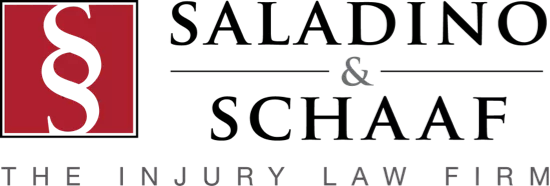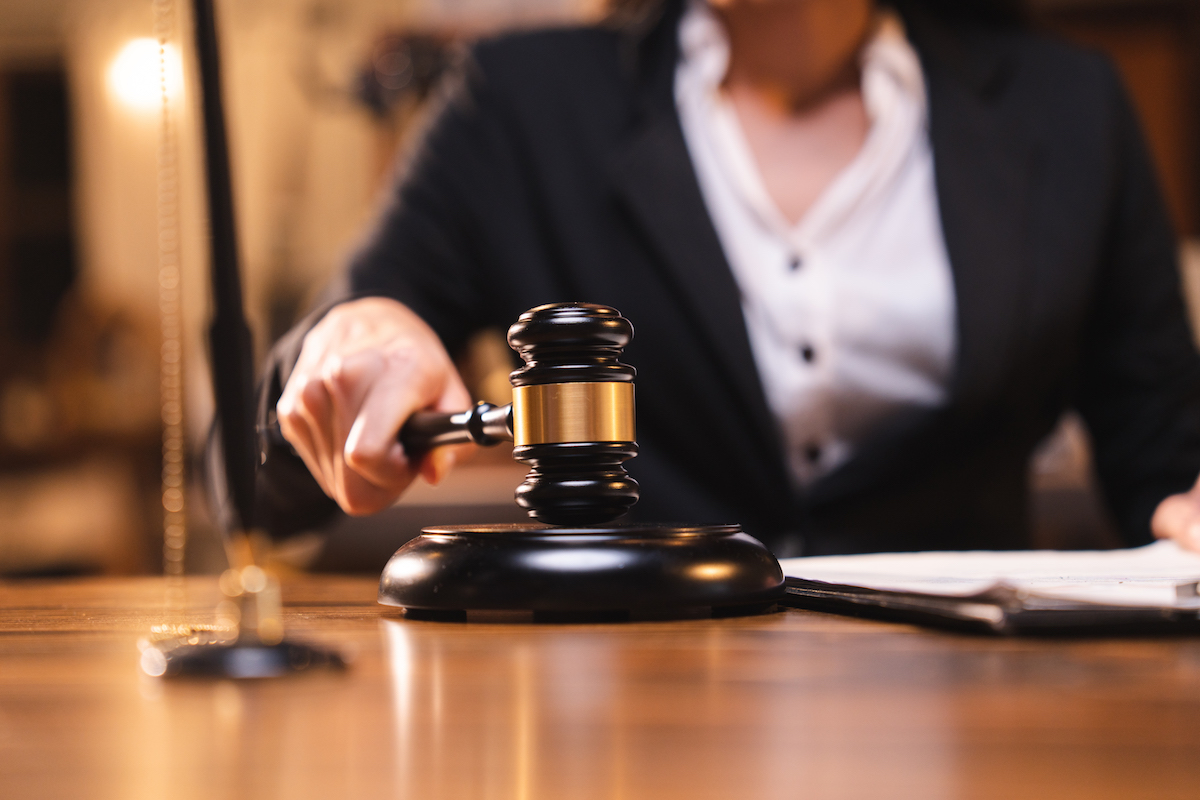If you find yourself on the precipice of a personal injury trial or want to be informed about the process, this guide is for you. It breaks down the phases of a personal injury trial and sheds light on what to expect.
Navigating the complexities of personal injuries can be daunting. From the immediate shock and pain of the incident to the subsequent legal process, there’s a lot to contend with.
If you cannot reach an out-of-court settlement, your personal injury case may head to trial. Being aware of the subsequent steps and challenges is important to the success of your case.
These steps can help demystify the personal injury trial process and, with the right representation, increase your chances of a favorable outcome.
The Pre-Trial Process
Embarking on a legal journey often begins long before you enter a courtroom. The pre-trial process is foundational. It can set the tone and provide direction for the case.
Consultation
During your initial consultation, your attorney will likely discuss the details of your case and advise on possible legal strategies. They’ll also answer any questions you might have about the process.
Filing the Lawsuit
The formal process begins with filing a lawsuit, otherwise known as a Complaint, which details the nature of your injuries and delineates why you’re seeking damages.
Following this, the defendant, or the party you’re suing, will file a response, either acknowledging fault or contesting your claims.
It’s important to recognize that every case is unique. The pre-trial process can be quick for some and lengthy for others, depending on the complexity of your case. With the help of experienced attorneys like Saladino & Schaaf, you’ll be equipped with the tools necessary to navigate these initial stages.
Discovery Phase
The discovery phase allows both parties to dive deeper into the case’s specifics. This phase involves the gathering, examining, and sharing of evidence, ensuring transparency and a fair trial.
Interrogatories
These are sets of written questions that parties exchange to seek information surrounding the facts of the case. It’s a way to understand the other side’s position and prepare for any potential challenges.
Both parties must answer these questions truthfully and comprehensively under penalty of perjury.
Depositions
During depositions, involved parties and witnesses testify under oath outside the courtroom.
Evidence Collection
Personal injury lawyers gather evidence to support your claim. This might include photographs, medical records, police reports, and other relevant evidence to help build your case. It’s a collaborative effort, requiring both parties to share information openly. This evidence not only strengthens your case but also assists in revealing necessary information to ensure a fair trial.
The discovery phase can be intense and, at times, emotionally taxing. The experienced lawyers at Saladino & Schaaf will help guide you through this phase.
Settlement Negotiations
While many cases go to trial, there’s often a significant push toward settlement before entering the courtroom. The settlement negotiation phase can be a strategic and, in many instances, beneficial alternative to a trial.
Advantages of Settling
Reaching an agreement outside of the courtroom can often be less stressful and sometimes more cost-effective than a trial. It provides both parties with a degree of control over the outcome, allowing for a resolution that might be mutually satisfactory.
The Role of Your Attorney
A personal injury lawyer can analyze the strength of your case, the evidence presented during the discovery phase, and assess the potential risks and rewards of going to trial. With this knowledge, they’ll advocate on your behalf, ensuring that any settlement offer reflects the true value of your claim.
Factors Influencing Settlement
Many factors can influence whether a case settles. These can range from the evidence discovered and the potential financial implications to the willingness of each party to reach a mutually satisfactory agreement.
It’s important to remember that while settlements can offer many advantages, they’re not always the right choice for every case. Sometimes, taking a case to trial is necessary to ensure justice is served.
Regardless of the path chosen, having the experience and guidance of Saladino & Schaaf ensures that your interests are protected.
Preparing for Trial
If settlement negotiations don’t result in a mutual agreement, a trial may be the best course of action for your situation. This stage is important in laying out a strategy that presents your case in the strongest possible light.
Jury Selection (“voire dire”)
During this process, both legal teams are allowed to question potential jurors to assess any biases or preconceptions. By asking questions, both sides will get to know the potential jurors better and understand their views on various case types. This helps to ensure that the jury is as unbiased as possible, aiming for a fair trial.
Opening Statements
Opening statements lay out the facts that support the basis of your legal claim. Both sides will present a brief overview of their case, highlighting the key points they intend to make. This is an opportunity for the plaintiff to establish the foundation of their argument, making it clear why they believe the defendant is at fault.
Presentation of Evidence
Following opening statements, evidence will be presented to the jury. This includes introducing documents, photographs, medical records, and any other relevant information to help bolster your case.
The Trial Process
The trial process includes a series of events designed to present evidence, hear testimonies, and convince the jury to rule in your favor.
Witness Testimonies
Witnesses play a pivotal role in personal injury trials. Their testimony can help back the evidence presented throughout the trial. Witnesses may include individuals who were present when the incident occurred, medical experts, or anyone else with information relevant to the case.
Cross-Examinations
After a witness testifies for one side, the opposing counsel can cross-examine them. This is an opportunity to challenge the witness’s credibility, clarify statements, or present alternative interpretations of the events.
Closing Arguments
At the close of evidence, both sides have a final chance to address the jury. This is the moment to summarize the evidence presented, reinforce the main arguments, and make a lasting impression. A compelling closing argument can significantly influence the jury’s final decision.
Having a team of experienced attorneys is invaluable throughout the trial process. At Saladino & Schaaf, you can be assured that every step, every decision, and every argument is done with your best interests in mind.
The Verdict and Possible Outcomes
After all the evidence is presented, the testimonies heard, and the arguments made, the trial reaches its crescendo – the verdict.
Jury Deliberation
This is a process by which the jury retreats to a separate room to discuss and analyze the evidence presented during the trial. It’s a time of reflection, discussion, and sometimes debate as the jurors aim to reach a decision on whether the defendant is liable and, if so, what damages should be awarded.
Verdict Announcement
Once the jury reaches its decision, it will be announced in court. This could result in various outcomes, from total compensation for the plaintiff to a partial award or even a decision in favor of the defendant.
After the Trial: Next Steps and Moving Forward
This section will guide you through the post-trial landscape and what you can expect moving forward.
Collecting the Award
If the verdict is in your favor and there is no appeal, you’re entitled to collect the damages awarded to you at trial. Depending on the specifics of the case and the defendant’s financial situation, this might involve structured settlements, liens, or other methods to ensure you receive what you’re owed.
Considering Future Implications
A personal injury trial can have long-term effects, both legally and personally. It’s essential to understand any potential future medical needs or other long-term impacts the injury might have on your life. Discussing these aspects with your attorney can help prepare you for what lies ahead.
Emotional Recovery
Beyond the legalities, addressing the emotional toll that a personal injury and subsequent trial can take is important. It might be beneficial to seek counseling or therapy to process the trauma and find a path forward.
Stay Informed
Laws and regulations are ever evolving. Maintaining a relationship with your legal counsel ensures that you’re always informed about any changes that might affect your situation or any new opportunities for recourse.
At Saladino & Schaaf, their commitment goes beyond the courtroom, ensuring you have the guidance, resources, and advocacy needed to move forward.
Why Choose Saladino & Schaaf for Your Personal Injury Trial
With years of dedicated service in Kentucky, Saladino & Schaaf has a proven track record in handling personal injury cases. Their vast experience ensures that your best interests are being represented.
Personalized Attention
Every case is unique. At Saladino & Schaaf, you’ll receive personalized attention, ensuring you understand the intricacies of your case, and develop a strategy tailored to your needs.
Comprehensive Services
From the initial consultation to the courtroom, Saladino & Schaaf offer comprehensive services, ensuring that every aspect of your case through trial, if necessary, is well managed.
Dedicated Advocacy
Saladino & Schaaf is passionate about fighting for the rights of their clients. They’ll work to ensure you receive the compensation you deserve.
Contact Saladino & Schaaf Today
If you or a loved one is facing a personal injury trial or seeking consultation, don’t wait. Reach out to the experienced lawyers at Saladino & Schaaf. Get a free online case evaluation or call us at our Paducah office: (270) 444-0406 or Murray office: (270) 753-1529.
Saladino & Schaaf is here to help.


